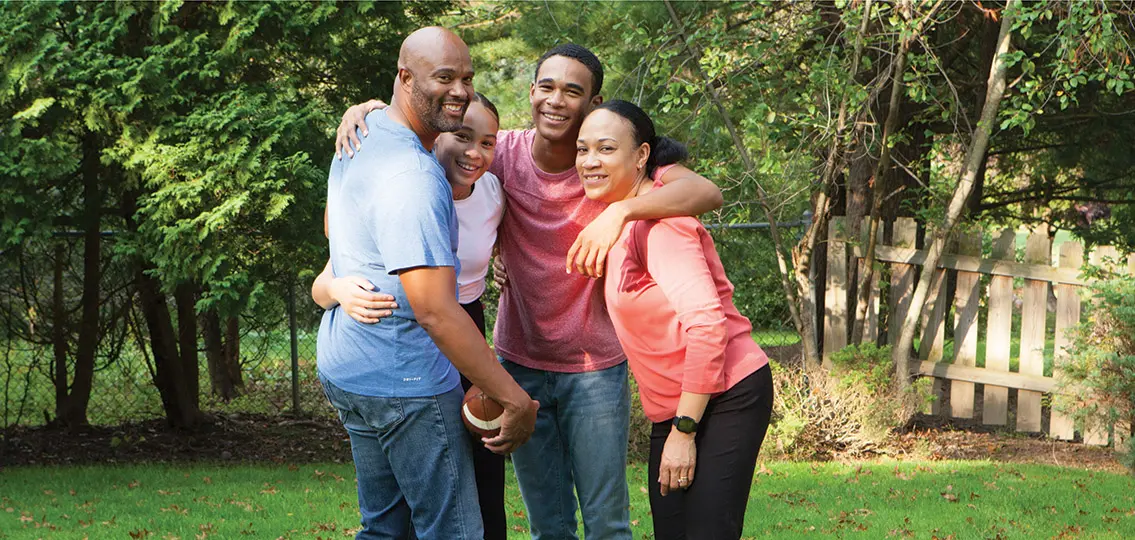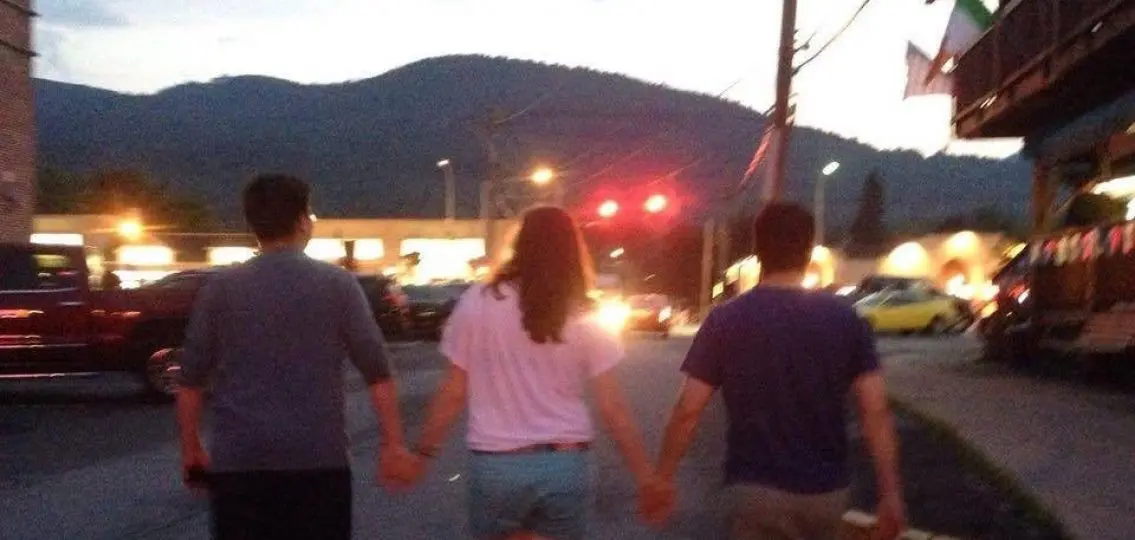“I miss you.”
I said this to my teenage daughter the other day when she was standing not five feet away from me in our kitchen. I’d been hit by a wave of longing for her earlier that afternoon—as I was eating chicken tenders, of all things.

While grocery shopping, I had grabbed a couple tenders from the deli counter to eat on the way home. It had taken me back to the days when my second child was younger and how the two of us spent a lot of time together, running errands in between her big sister’s practices, classes, and events. We often picked up a few pieces of chicken from the grocery store because they provided some on-the-go protein for my girl who isn’t otherwise a big meat eater. For years, I had chicken-tender shrapnel in the crevices of my minivan.
I thought about all this while I was driving home, eating my portable lunch, and so when my daughter stopped by our house after school before dance, for what we refer to as her “layover,” I told her I missed her.
Without asking for an explanation, she said, “I miss you, too.”
I miss my little girl. And I know I’m not alone in this missing. I know I have lots of company in this club.
We are the parents who are missing our teenagers even though most of these kids still sleep in our houses and eat our food and leave their shoes lying around for us to trip over.
We are missing our teenagers who just started driving. While it’s mostly fabulous not to be full-time chauffeurs anymore, in exchange we have lost our car conversations or, at the very least, the comfort of being together with our kids on a regular basis.
We are missing our teenagers who have pulled away from us. We know this is what they do—what they’re supposed to do, even—but the separation we did not initiate leaves a void that’s hard to get used to.
Some of us are missing teenagers who have run away from us. We’re trying to figure out what we did wrong and how we can make it right so they will come back.
We are missing our teenagers who have changed so much, and so quickly, that they seem like strangers.
It’s not that these unfamiliar people who drift in and out of our days and nights are necessarily unlikable, it’s just that we don’t know them. We suspect we’d probably like them very much, given the chance to get acquainted, but we’re not sure when we might get that chance.
We are missing our teenagers who are just so busy with good things that they are rarely home. All their sports, clubs, classes, teams, jobs, and social events are normal and healthy pieces of adolescence, but we mostly see our kids doing them from the sidelines or the stands or at the occasional performance. We see more of the laundry produced by their activities than we do the teens who spend so much time doing them.
We miss our teenagers whose hearts—or big pieces of them, anyway—now belong to boyfriends and girlfriends. A lot of us are happy for our kids to have found young love, but our own hearts worry about theirs getting broken.
We miss our teenagers who haven’t done any of these things yet but are getting ready to. We hear them talk about “when I do this” or “I can’t wait to do that,” and we miss them ahead of time.
As parents, we want to give all this missing a voice.
We need to listen between the lines to what it’s saying. This missing speaks of relationships and connections. It speaks of histories together. It speaks of shared memories, and future memories to be made.
And loudest of all, it speaks of love.
Most days, I’m truly glad for all of the good things, even if it means I have to miss my daughter. I dare not take the good for granted. It’s good from our shared yesterdays (chicken tender shrapnel and all). It’s good that makes me look forward to what we might share tomorrow.

And so, while I loosen my grip on what was and miss what has been, I’m holding on tight to all the good that’s still to come and the hope that, when the time comes, I’ll have a lot to miss.




